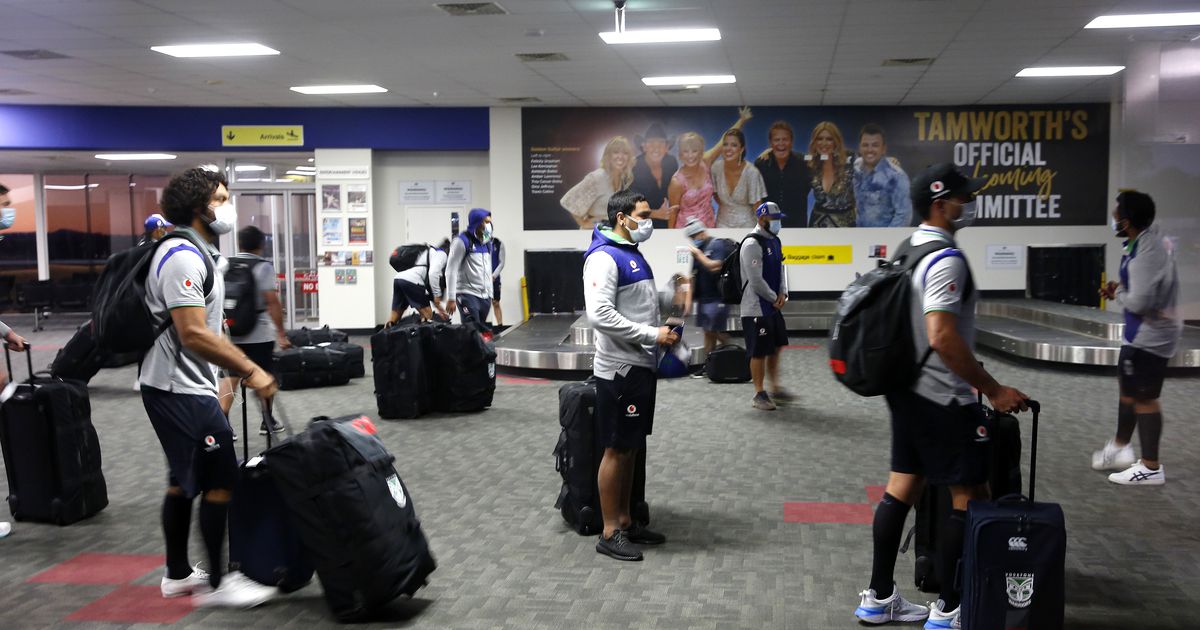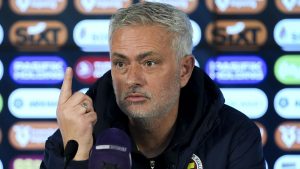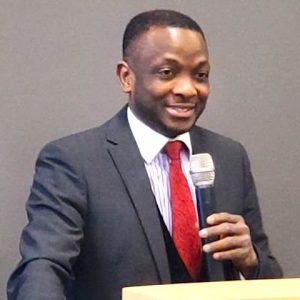Rugby league hits vaccine roadblock on May 28 return to play


BRISBANE, Australia (AP) — The National Rugby League’s planned return to competition on May 28 after a two-month shutdown amid the coronavirus pandemic is being upstaged by at least one player who refuses to get a seasonal flu vaccine.
It’s reached the upper echelons of the Australian government, with Home Affairs Minister Peter Dutton on Thursday reiterating Prime Minister Scott Morrison’s call for the NRL to institute a “no jab, no play” policy as teams gather this week to begin training ahead of the scheduled re-start.
Gold Coast Titans forward Bryce Cartwright has refused to get the annual flu shot and said it would be “coercion” if he was forced into getting the vaccine.
Also, Canberra Raiders forwards Sia Soliola, Josh Papalii and Joseph Tapine were reported by local media to have crossed out a line in the NRL’s vaccination waiver that stated players must accept they are at a heightened risk of contracting influenza if they go without the injection.
Medical officials have told the NRL that players getting influenza in tandem with COVID-19 — for which there is no vaccine yet — would result in serious illnesses and could spread quickly through a team.
Cartwright also put a line through a sentence stating players accept being at greater risk of contracting influenza without the injection.
“I won’t be bullied into making decisions that could impact my health and the health of my family,” he said on social media. “Giving us the ultimatum of get the shot or be stood down is coercion and leaking private medical information is illegal.”
Dutton said the NRL made it clear to the federal government that flu vaccines were to be administered as part of permission for the competition to resume later this month, albeit with no spectators allowed in stadiums.
“The conditions were obvious and the commitments were made by the NRL before a decision was made to allow them to go ahead,” Dutton said. “We provided support, obviously, for the players to come from New Zealand, and we did that based on the health advice. And the health advice was based on the commitments given by the NRL. So I think it’s pretty clear-cut.”
The New Zealand Warriors players and staff arrived in Tamworth, north of Sydney in New South Wales state, on the weekend after being given government permission to enter Australia despite a general ban on incoming travelers. They’ll be in isolation for 14 days during which they’ll be able to train in the regional city, but they’ll likely be without their families until the NRL season ends in October.
Two NRL rounds were played before the season was suspended on March 23 when Australia started going into lockdown. The NRL plans a 20-round season in a revised schedule with the grand final to be played on Oct. 25.
The match venues have not been determined, although most are expected to be played in New South Wales state.
Veteran coach and commentator Phil Gould says he can’t understand why the flu vaccine has become such an issue in the NRL season relaunch, saying the flu shot was administered to players each year at all 16 clubs.
Gould said it made sense for players to get the flu vaccination for their general health but noted there were people with different opinions and it could create tension among the players.
“The whole anti-vaxxing argument does bring tension, it does bring pressure, particularly against young mothers that may have someone else in the club that doesn’t want to vaccinate their children … but that’s a whole bigger argument,” Gould said on a Wide World of Sports podcast.






